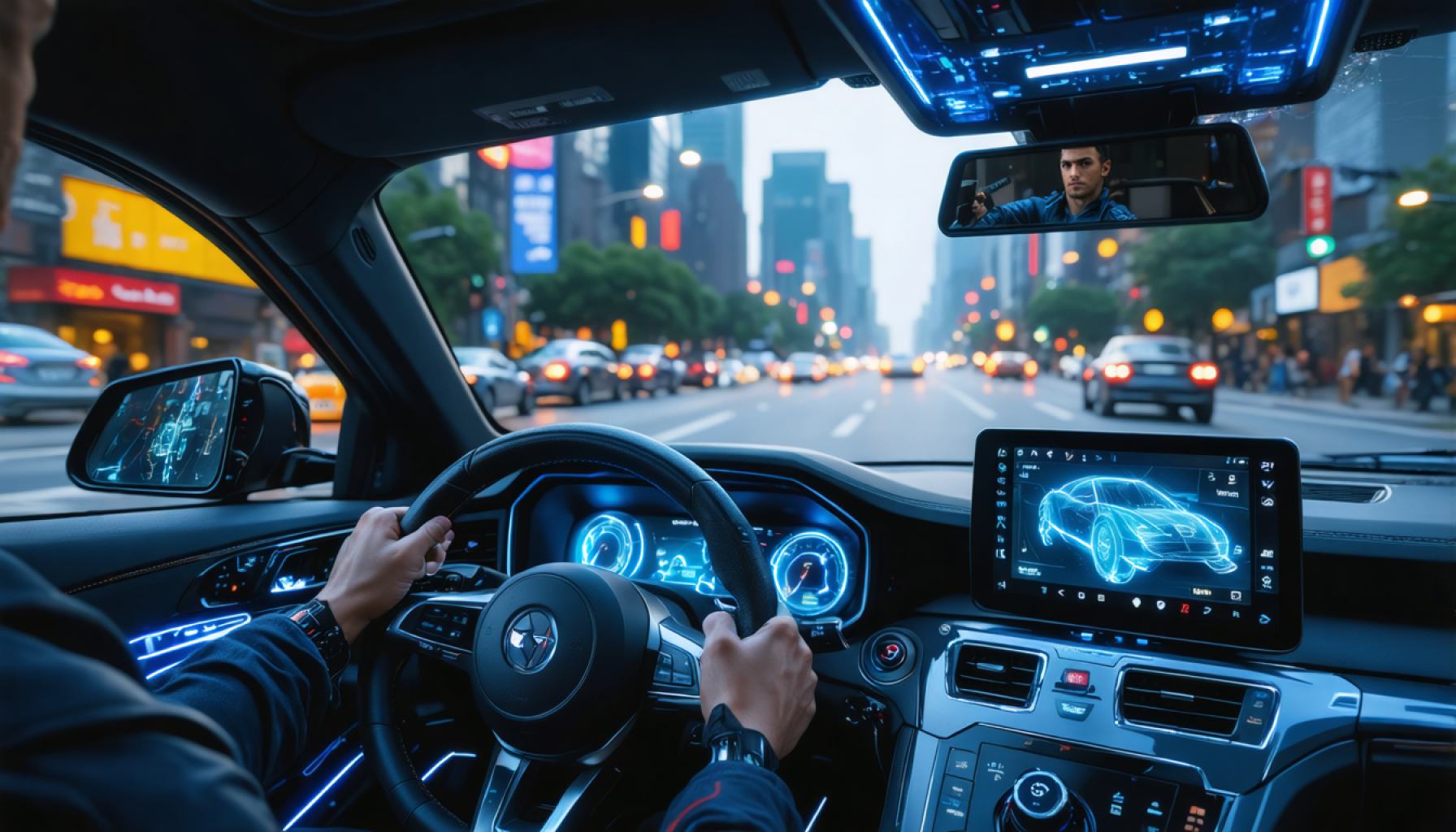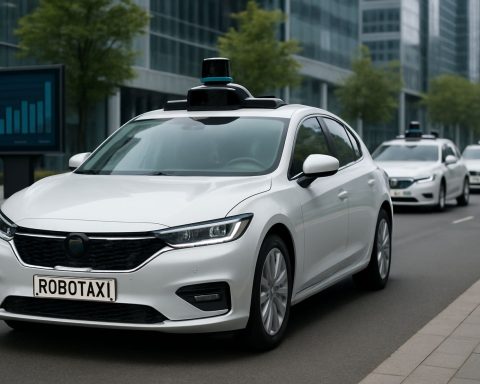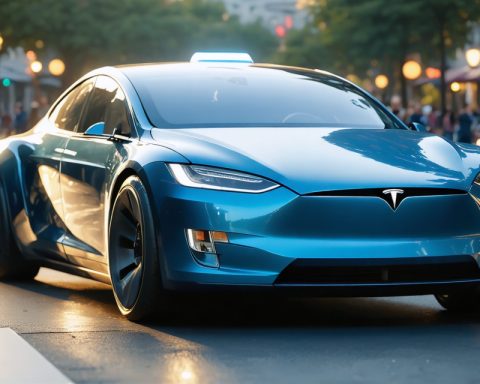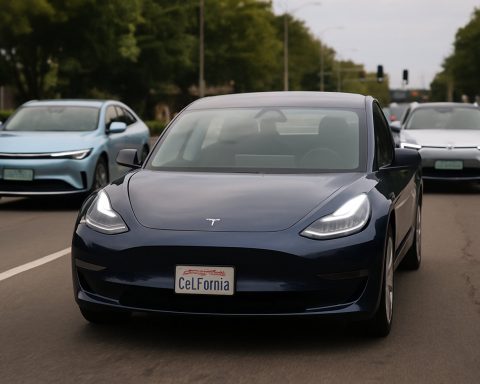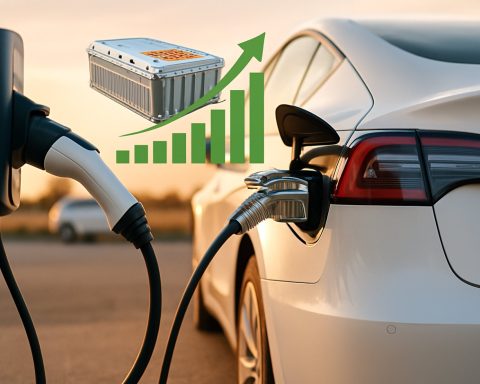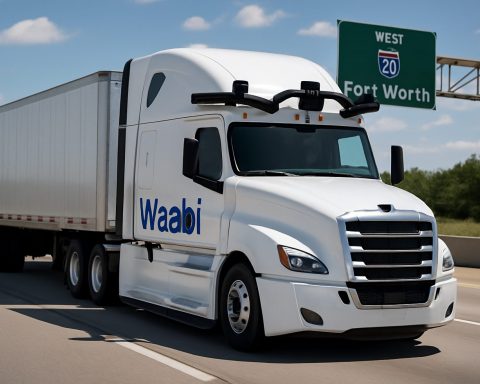- Xpeng announces the second-generation XPeng P7, touted as “the world’s first AI-defined car,” poised to challenge Tesla.
- The P7 is equipped with advanced autonomous driving features and a smart cockpit, offering an immersive experience through its Turing AI chip.
- Xpeng aims for global expansion, starting with three initial models and targeting the Chinese premium EV market by 2028.
- Tesla faces declining sales amidst fierce competition in the Chinese market, highlighting the need for strategic recalibration.
- The unveiling of high-tech vehicles like the P7 sparks discussions on the future of AI in transportation, with cars becoming interactive companions.
- Adaptation is crucial in an era where artificial intelligence transforms daily life, including the way we drive.
A sleek silhouette glides silently down the road, poised to disrupt the very fabric of modern transportation technology. This isn’t just another car from the burgeoning ranks of electric vehicle (EV) manufacturers; it’s a challenge—a bold statement—lodged squarely at the iconic Tesla brand. Xpeng, the Chinese automaker turning heads globally, unveils its latest, most audacious creation: a vehicle described as “the world’s first AI-defined car.” As technology dovetails with innovation, this automotive revelation stakes a claim as the vanguard of the artificial intelligence era.
The second-generation XPeng P7 EV, fittingly dubbed a “super saloon,” aims not merely to ferry passengers from one point to another but to redefine the essence of automotive intelligence. Equipped with cutting-edge autonomous driving features and a smart cockpit, the P7 embodies the leap from a mundane commute to an immersive experience. One can almost imagine this car, underpinned by its proprietary Turing AI chip, engaging in a lively discourse with its owner—much akin to how pivotal AI models like ChatGPT interact—bringing a science fiction fantasy to life.
Beneath its hood, the P7 isn’t just about advanced engineering; it’s about vision. Xpeng’s ambitious blueprint envisions the global stage, hinted by its UK importer’s intention to dominate the Chinese premium EV market by 2028. This rollout begins with the launch of three initial models, eyeing further expansion, including the enigmatic P7, poised to sweep across roads from Shanghai to the streets of London.
What does this mean for Tesla, the embodiment of the electric revolution? The American pioneer finds itself cornered by fierce competition, particularly within the coveted Chinese market. The staggering statistics don’t lie—sales have plummeted, reflecting not just competition but Tesla’s need for a strategic recalibration.
The dance of high-tech titans inevitably sparks spirited discussions and speculative investments. As mind-bending AI continues to redefine traditional boundaries, the electric vehicle market might just deliver the future’s most promising ventures—heralding an era where your car becomes a genuine driving companion. Will Xpeng’s vision carve out the next automotive epoch? As these electric dreams take shape, the race towards defining vehicular autonomy begins—prompting a worldwide audience to lean in and watch history unfold.
In a world teetering on the brink of technological renaissance, the key takeaway crystallizes: Adaptation isn’t just about keeping pace with change; it’s about orchestrating it, anticipating a future where artificial intelligence enriches the fabric of daily life, one drive at a time.
The Game-Changer in the EV Market: Xpeng’s AI-Defined Super Saloon
Overview of Xpeng’s AI-Defined Vehicle
Xpeng’s latest release, the second-generation P7 EV, represents a significant leap in automotive innovation, embracing artificial intelligence while promising to transform our driving experiences. With the vehicle being labeled as the “world’s first AI-defined car,” it transcends typical car manufacturing to pave the way for a new era in the electric vehicle market.
Features and Specifications
1. AI Integration: At the heart of the P7 is the Turing AI chip, enabling smart interactions with the driver akin to conversational AI models like ChatGPT. This integration allows for a personalized user experience as the vehicle adapts to its owner’s habits and preferences.
2. Autonomous Driving Capability: Equipped with advanced autonomous driving features, the P7 is designed to alleviate commuting stresses while maximizing safety. It boasts enhanced navigation and driver-assistance technologies for a semi-autonomous driving experience.
3. Smart Cockpit: Featuring a sleek design, the P7 provides a futuristic, immersive environment within the car, offering seamless interaction through touch and voice controls.
4. Performance: The P7’s specs emphasize both efficiency and performance, ensuring a smooth, high-speed drive with substantial mileage on a full charge.
Impacts on the Global Market
Tesla’s Challenge
Xpeng’s foray into AI-defined EVs poses a substantial challenge to Tesla, especially in the competitive Chinese market. Tesla’s sales have indicated a potential need for innovation and diversification to retain their supremacy amid this rising competition. With Xpeng’s strategic global rollout, including plans for European expansion, Tesla must reevaluate its market strategies to maintain its edge.
Market Forecast and Trends
According to recent market analyses, the demand for AI-integrated vehicles is expected to rise significantly as consumers seek more personalized and automated experiences. Companies like Xpeng could capitalize on this trend by expanding their offerings and enhancing technological capabilities.
Sustainability and Security
Electric vehicles like the P7 contribute to sustainable practices by reducing carbon emissions. However, with increased connectivity, security becomes a priority to protect vehicular AI systems from cyber threats.
Actionable Recommendations
– For Consumers: Stay informed about advancements in electric vehicles and consider EVs that prioritize AI integration for a more enhanced driving experience.
– For Manufacturers: Investing in AI research and development is crucial. Collaborating with tech companies could lead to innovations that ensure safety and functionality in automated driving.
– For Investors: Monitor trends within the AI-defined automotive market, as companies like Xpeng demonstrate promising growth and potential profitability.
Conclusion
As the automotive industry integrates AI with electric vehicles, Xpeng’s P7 stands out as a revolutionary step forward. Its implications for global competition are profound, urging industry leaders to transform their approaches to technology and consumer engagement. The future of driving appears increasingly intelligent, interactive, and sustainable.
For more details on global automotive innovations, visit XPeng and other Tesla resources.
